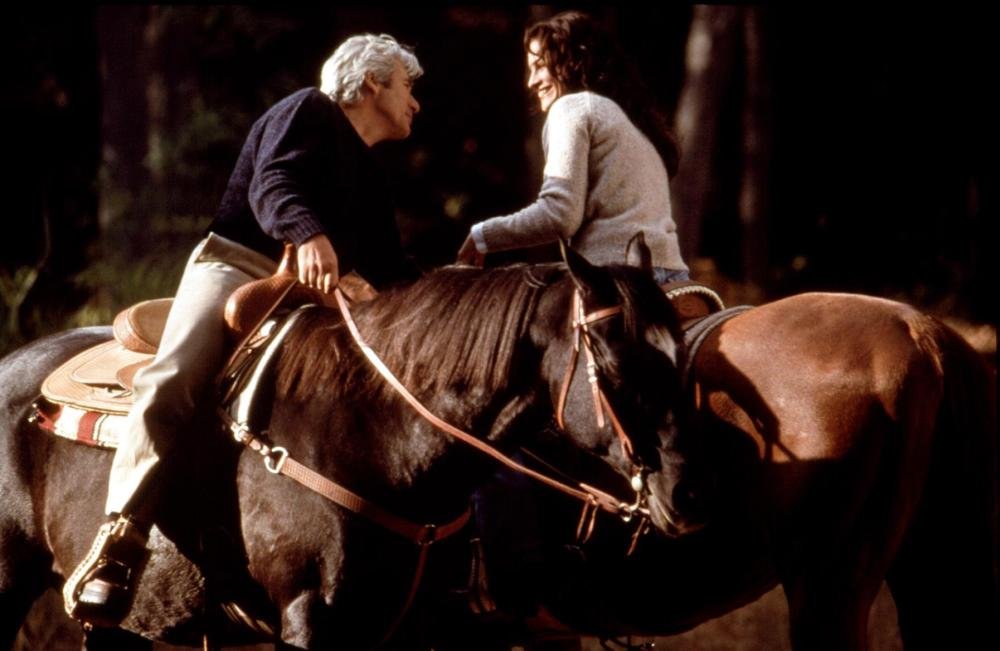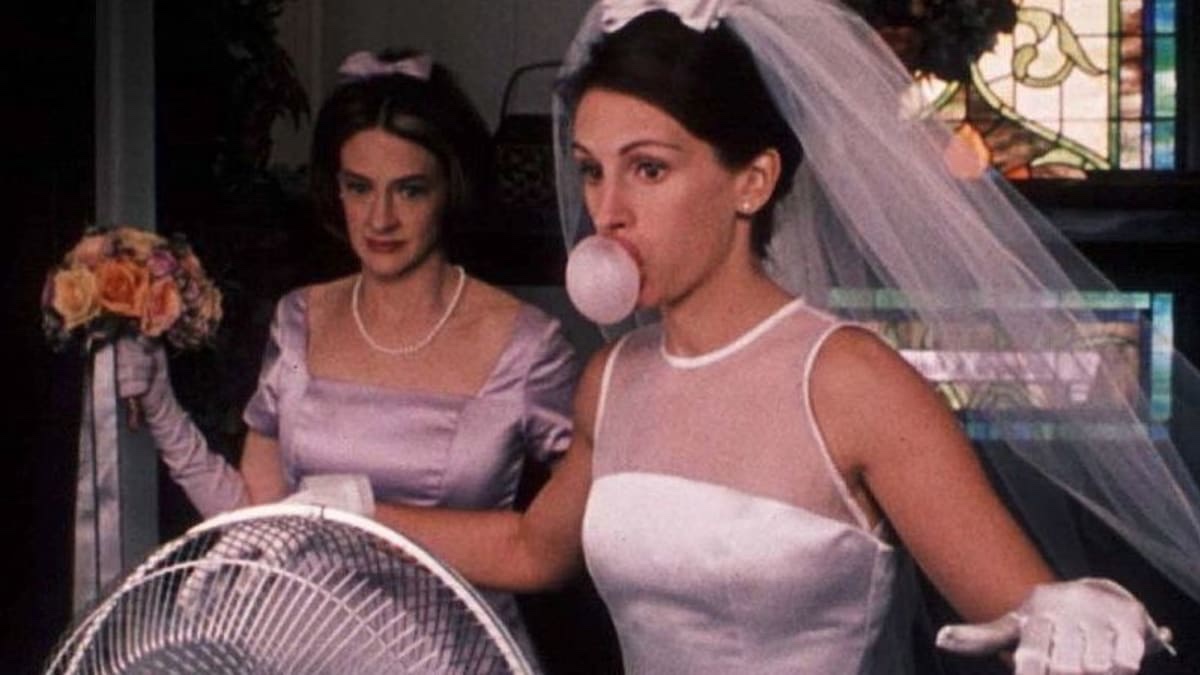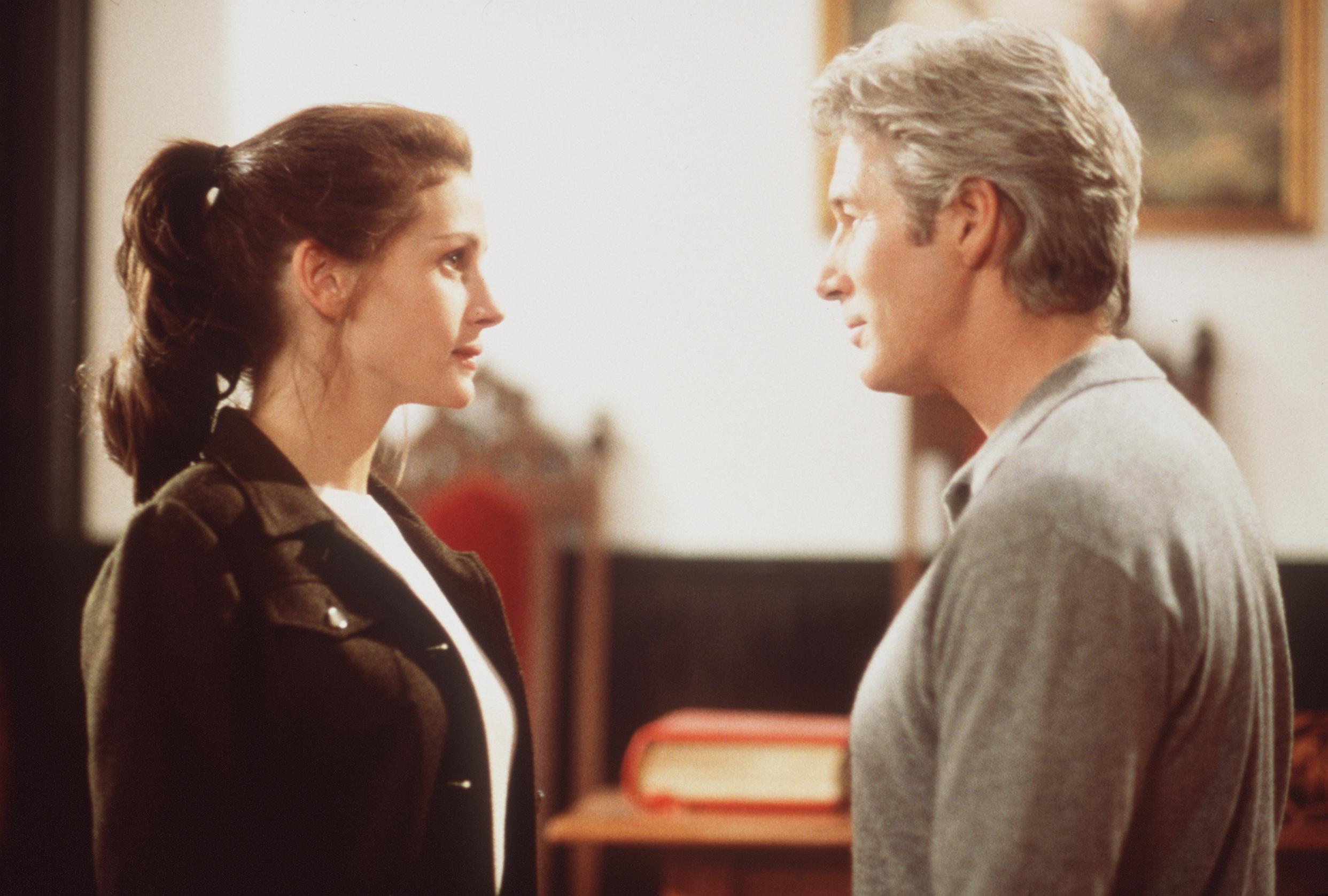Runaway Bride (1999)



The story centers on Maggie Carpenter (Julia Roberts), a small-town Maryland woman notorious for leaving multiple grooms at the altar, earning her the nickname “Runaway Bride.” Ike Graham (Richard Gere), a cynical New York columnist, writes a mocking article about her based on a barroom tale, only to be fired when Maggie disputes its inaccuracies. To salvage his career, Ike travels to Hale, Maryland, to profile her next wedding to coach Bob Kelly (Christopher Meloni). As Ike embeds himself in Maggie’s quirky community—meeting her family, friends like Peggy (Joan Cusack), and ex-fiancés—he discovers her fear of commitment stems from a lack of self-identity. Maggie, charmed by Ike’s wit, begins to confront her insecurities, leading to mutual attraction. When her latest engagement unravels, Maggie must choose between running again or embracing love and authenticity, culminating in a heartfelt, unconventional resolution.
Roberts sparkles as Maggie, balancing vulnerability and comedic flair, while Gere’s suave, sardonic Ike complements her perfectly, their chemistry reigniting Pretty Woman magic. The ensemble, including Cusack’s bubbly Peggy, Rita Wilson as Ike’s editor (and real-life wife to Tom Hanks), and Héctor Elizondo as a hotel manager, adds warmth and laughs. Marshall’s light touch, paired with Stuart Dryburgh’s idyllic cinematography of Maryland’s countryside (filmed in Berlin, Maryland), creates a cozy, nostalgic vibe. James Newton Howard’s upbeat score and cameos like Laurie Metcalf enhance the charm, though some subplots, like Ike’s ex-wife arc, feel underdeveloped.

Critically, the film earned a 46% Rotten Tomatoes score (88 reviews) and 39/100 on Metacritic (31 reviews), with Roger Ebert giving 2/4 stars for “artificial” plotting, though he praised the stars’ appeal. Variety noted its predictability but lauded the “effervescent” leads. Audiences loved it, giving an A- CinemaScore, and fans on Amazon (4.7/5 from 4,900 reviews) and X adore its feel-good vibe, often citing Roberts’ radiant smile and the iconic wedding-dress montage. While less sharp than Pretty Woman, its exploration of self-discovery elevates it beyond rom-com fluff.
Shot over three months in 1998, the production capitalized on Roberts and Gere’s star power, though Marshall tweaked the script to deepen Maggie’s arc after test screenings. Its cultural impact endures, with references in pop culture and wedding-themed media. Available on Paramount+, Amazon Prime, and Hulu (per recent web data), Runaway Bride is a cozy escape for rom-com fans, though its formulaic beats may not win over cynics. It’s a testament to love’s timing and the courage to know oneself, wrapped in 1990s charm.











